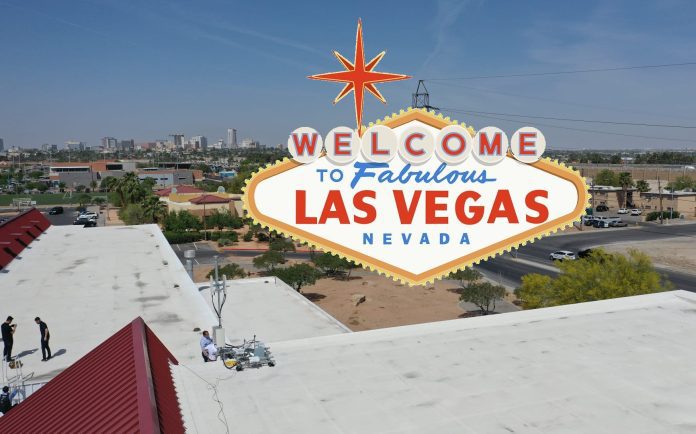California-based private network provider Terranet Communications claims to have installed the “largest private municipal LTE/5G network” in the US in record time with rollout of private LTE across the city of Las Vegas, in Nevada, in 45 days. The setup has been delivered, in the first instance, to connect students and educational institutions in the city, but will be used also for other “community assets”, and could stretch into neighbouring areas.
The network has been described as “5G-ready”. Terranet, focused on the smart cities space, recruited open radio-access network (RAN) provider Baicells into the project. Baicells claims its LTE and 5G technology is “disruptively priced and technically innovative”. The set up uses CBRS spectrum at 3.55-3.7 GHz; it is unclear whether the spectrum was secured on a priority access (PASL) or general access (GAA) licence.

The city of Las Vegas said the pace of the rollout is “unheard of in government”. Michael Sherwood, chief innovation officer for the city, said the project was “start-to-finish, turn-the-switch-on, up-and-running” in 45 days. He said: “We had students connecting, [and] everything was flawless and smooth.” The city’s first priority, it said, is to “democratize broadband and close the digital divide”, cleaved wider as Covid-19 hindered students without internet access.
But the city has aspirations as well to be a “premier US smart city”, and one of the country’s first, it said in a statement. It has devised a four-step plan to expand the network across the city and into neighbouring cities, with a goal of improving connectivity for other city services, including law enforcement, telehealth, and general IoT infrastructure.
Sherwood commented: “We want to be known not just as the entertainment capital, but as the technology epicentre – with the right ecosystem to bring people and business together to create new opportunities… Terranet’s private LTE network was constructed for our specific requirements. This network has allowed the city to provide a needed service for our students and citizens, while adding to the technologies that are part of our innovation hub.”
A press statement quoted a study by analyst group Frost & Sullivan, which predicts the private cellular sector could generate significant business opportunities with a market value of $2.46 trillion by 2025. US president Joe Biden approved a new infrastructure bill in June with $65 billion for broadband deployments in cities and regions.
Bart van Aardenne, chief executive at Terranet, said: “The world is recognizing that broadband is as essential as other basic human needs. Terranet’s design and end-to-end deployment approach to the Las Vegas private network is a significant example of how our company’s expert team and best-in-class infrastructure partners can quickly and cost-effectively meet real-world needs for specialized, robust, reliable and secure broadband connectivity.”
He added: “Democratized access to connectivity can help elevate communities through improved access to important information and services and other quality-of-life programs that increase equal access to information and services, improve living conditions and ensure no one is left behind.”
Bob Stone, director of carrier solutions at Baicells in North America, said: “Setting up a private LTE network in Las Vegas was no small task. Our plug-and-play equipment made it possible for us to set up a proof-of-concept project in 45 days, and that was crucial to getting the network off the ground. Terranet and Baicells were vital in making this happen.”
Las Vegas has a number of smart city initiatives, most notably for traffic management. In March, it started testing a smart curbside management solution from Cox Communications to reduce traffic congestion downtown, including with parking sensors, digital kiosks, and various analytics to better manage active curb loading zones for taxis and rideshares.
In parallel, it is paying $1.58 million over five years to Australian AI provider SenSen Networks for a range of camera-based AI solutions to automate the enforcement of parking and traffic regulations. Chicago Parking Meters in the city of Chicago has also signed with SenSen Networks. The Las Vegas deal is the biggest contract the company has signed with a single customer.
Last May, LAs Vegas extended its smart-city rollout with Japanese group NTT to cover high-definition optical and audio sensors at 14 locations across the city. An initial trial had provided information to city personnel to increase situational awareness and provide some minor traffic management data. The extension covered the installation of sensors at a number of new locations.
The city is also working with network operator AT&T and IoT provider Ubicquia to rollout smart street-lighting, with AT&T replacing existing photocells with Ubicquia’s dedicated streetlight routers in certain downtown areas, and connecting them to its mainstream LTE and low-power LTE-M networks.

